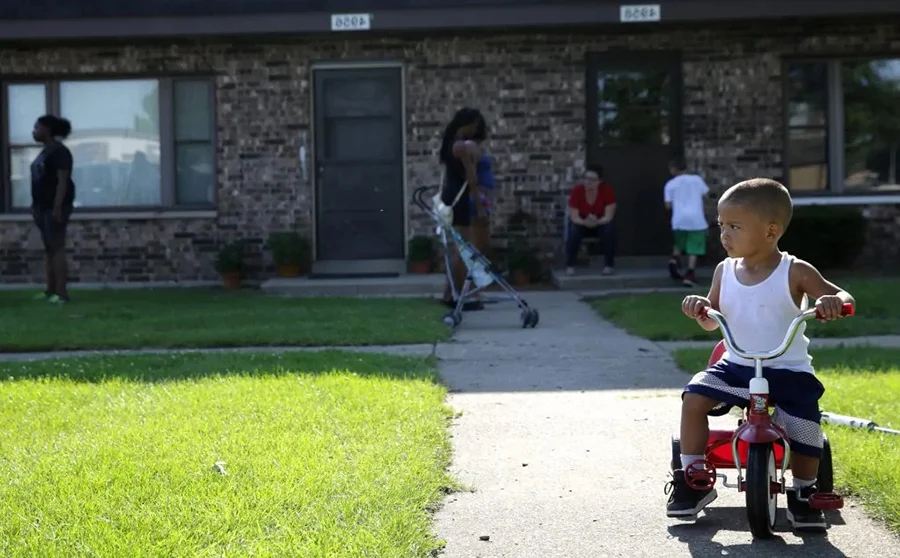
HUD has failed for years to implement its own environmental regulations.
April 26, 2021
All people have the right to a safe, affordable, healthy home to build better futures for themselves and their families. Yet across the country, tens of thousands of families living in federally assisted housing are living on dangerously contaminated land where they face an urgent and ongoing environmental and health crisis.
The Shriver Center, in partnership with Earthjustice, the National Housing Law Project, Abrams Environmental Law Clinic at the University of Chicago Law School, and the Wake Forest Health Law Clinic, has written HUD Secretary Marcia Fudge to advocate for the swift implementation of measures to promote environmental justice in federal housing policy.
In February 2021, the Department of Housing and Urban Development (HUD)’s Office of Inspector General released a report detailing how HUD had failed for years to enforce its own environmental regulations, resulting in the lead poisoning of children living at the West Calumet Housing Complex in East Chicago, Indiana. According to the report, although HUD identified 2,745 HUD-assisted housing sites as posing particularly high contamination risks, only seven developments are being addressed for remediation. The report concludes that HUD failed to protect public housing residents from the significant environmental hazards in East Chicago, and that HUD’s current practices and policies fail to ensure this same harm is not happening in other communities.
The Shriver Center and its partners recommend that HUD improve its compliance with the National Environmental Policy Act, incorporate environmental hazard evaluations into its physical condition standards inspections, and engage with residents to provide actual notice of environmental concerns and ensure they have options to make the best available decisions for their families.
Read our report, Poisonous Homes: The Fight for Environmental Justice in Federally Assisted Housing, to learn more about this issue. And hear from Akeeshea Daniels, a community activist, about her experience living on contaminated land in East Chicago.
Shelter is not only a basic human need, it is also critical to people’s ability to pursue and attain economic stability.
Housing is fundamental to achieving economic stability, better health outcomes, and thriving families and communities.